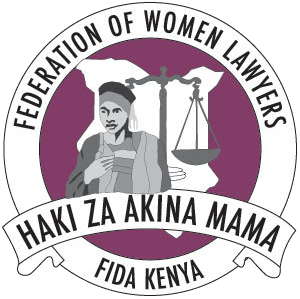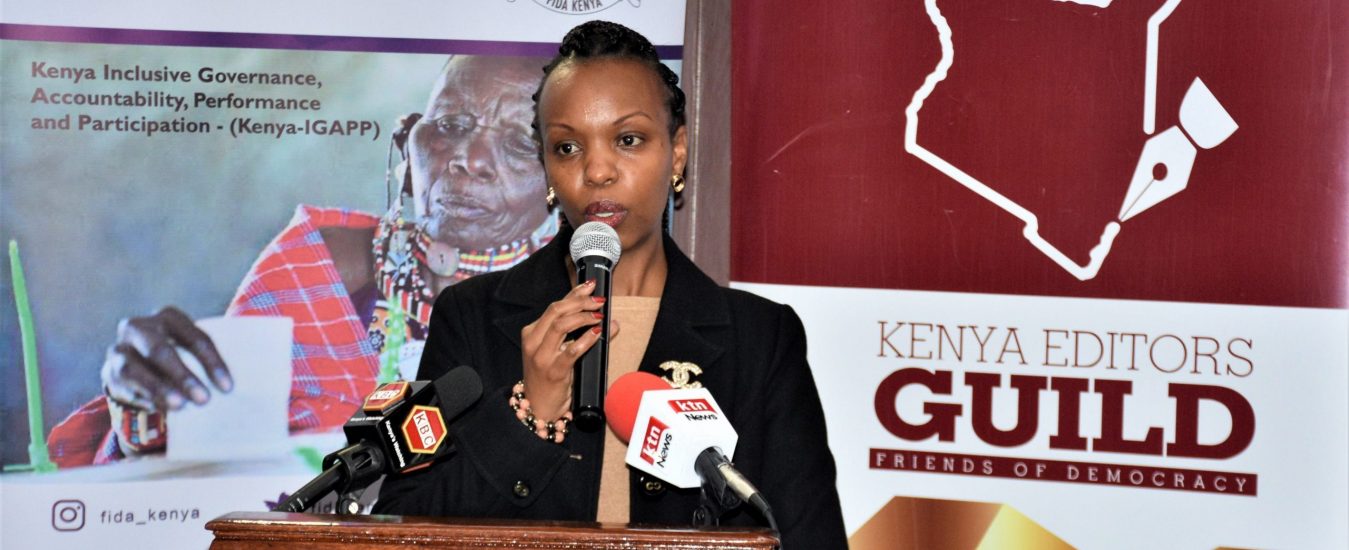Kenya Media Editors Meeting
Article by Jerry Masha
Conversations surrounding gender tend to be perceived to be about women thus promoting inequality and other socially constructed challenges that women face. The coverage of women by the media is not about covering women, but covering both genders equally.
Women and men tend to be treated very differently by the media, worldwide. Similarly, men and women tend to have vastly different experiences of participating in political processes. The application of double standards for men and women resulted in tremendous caution among many female candidates when allowed to participate in television or radio, and as a result, most women have avoided media-based public discourse and ultimately lost visibility. Offline and online sexual harassment attacks which embody different forms have curtailed women’s participation in politics.
The media is a mirror of society; therefore, it creates perceptions. Inequalities that happen as a result of lack of gender mainstreaming lead to lack of vision and inadequate distribution. Gender Mainstreaming in the media means discussing and including issues, experiences and interests of women and men so that they can influence, participate in and benefit from development processes. It goes beyond increasing women’s participation in media outlets as it entails promoting equality in collecting, selecting, verifying, editing and disseminating news.
In an equal world where female politicians are facing a myriad of challenges; the media is a major determinant of representation of women in leadership positions at the political level.
On June 13, 2022, FIDA-Kenya and other stakeholders engaged the Kenya Editors Guild in voicing up for women in political participation, preventing and responding to Electoral related Sexual and Gender-Based Violence. The objective of the meeting was to amalgamate sectoral initiatives in Women’s Leadership and political participation, build consensus on gender-sensitive reporting, identify the role of the media in the realization of affirmative action and discuss approaches to the elimination of SGBV in particular; media profiling of SGBV political tool in the election process.
Despite the problems and disparities, women candidates overall feel that the quality of coverage of female politicians and candidates has improved significantly since 2013 and in the run-up to the 2022 General Elections as journalists have understood the need of giving women more space.
Even so, there is still a need to adopt different practical and pragmatic methods to ensure that women pursue leadership positions in 2022 and beyond with the support of the media and also a need for a talk on the increase in online violence against women and a platform to address these issues.






Comments (11)
fi888bet
Alright mates, just gave fi888bet a whirl. Pretty slick layout, easy to navigate even after a few, haha! Games are decent, and I actually managed a small win! Give fi888bet a go, might be your lucky day!
fatah777
Yo guys, just checked out fatah777 and it’s pretty decent. Good selection of games and the site is easy to navigate. Definitely worth a look if you’re looking for something new. Check it out here: fatah777
45678betvn
Yo, has anyone else been checking out 45678betvn? It’s got that Vietnamese feel to it, which is cool. The interface isn’t too shabby either. Give it a look if you’re looking to try something different. Here’s the link: 45678betvn
3388betcom
3388betcom, eh? I’ve browsed around. It’s not the fanciest site, but it gets the job done. If you’re looking for something straightforward, this might be it. Here’s the site: 3388betcom
vz66slot
Galera, tô afim de uns slots e me falaram da VZ66Slot. Os gráficos são bons? Tem bastante opção? Aceito dicas! Fica a dica: vz66slot
ganabetbono
Looking for a good bonus? I stumbled upon ganabetbono, and their bonus offers are pretty enticing. It could be worth checking out if you’re looking to boost your playing funds: ganabetbono
binance h"anvisningskod
Thanks for sharing. I read many of your blog posts, cool, your blog is very good.
open binance account
Your article helped me a lot, is there any more related content? Thanks!
superjililogin
Alright, gotta remember my superjililogin deets. Used it a bunch last month, hope I didn’t forget the password. Fingers crossed!
8casinocomapp
8casinocomapp. The mobile app runs pretty smooth – makes it easy to play on the run. I played some Baccarat. Give it a try. Download the app here: 8casinocomapp.
55555bet1
55555bet1, com tantos 5, só pode dar sorte! Um site direto ao ponto, com apostas variadas. Pra quem não quer complicação, é uma boa opção. Confere lá em 55555bet1.